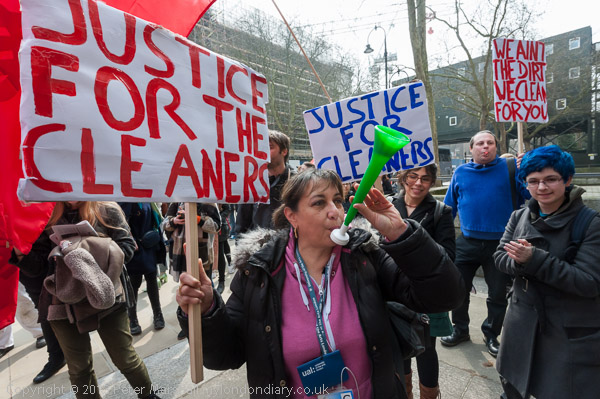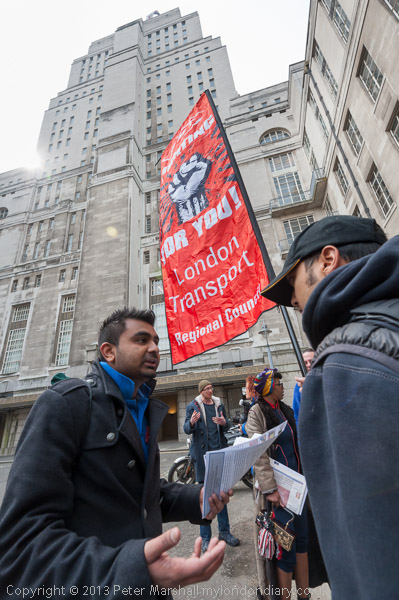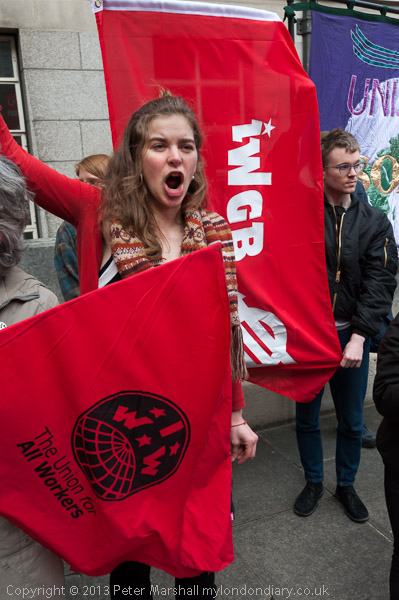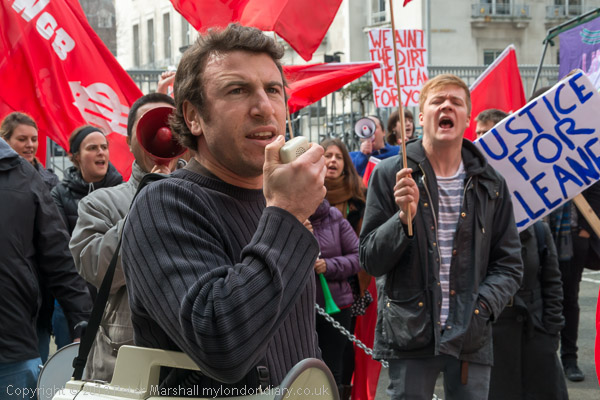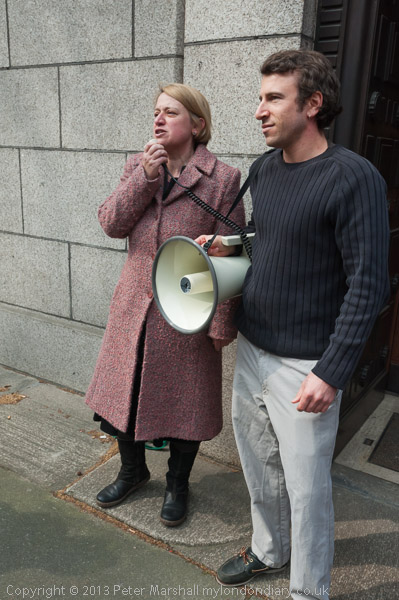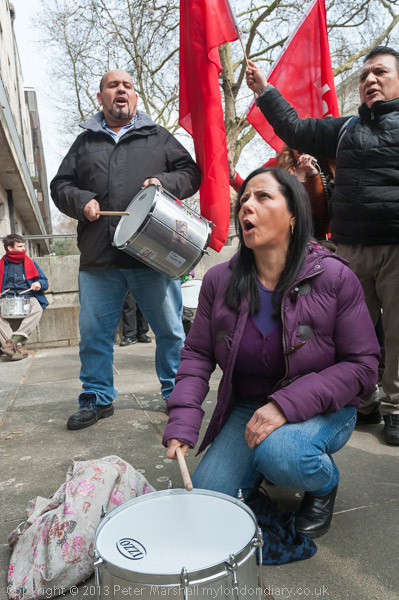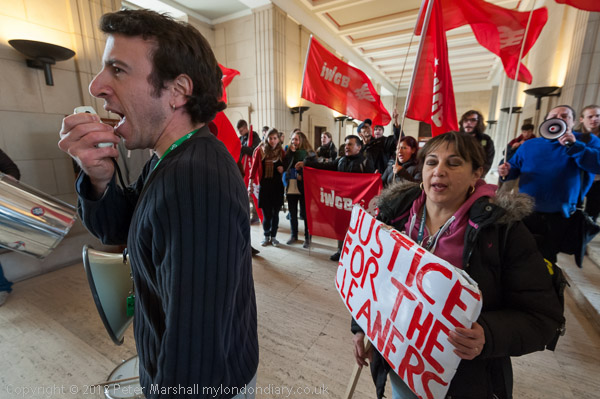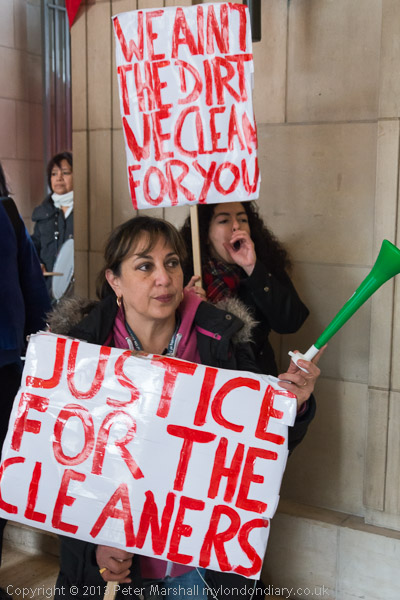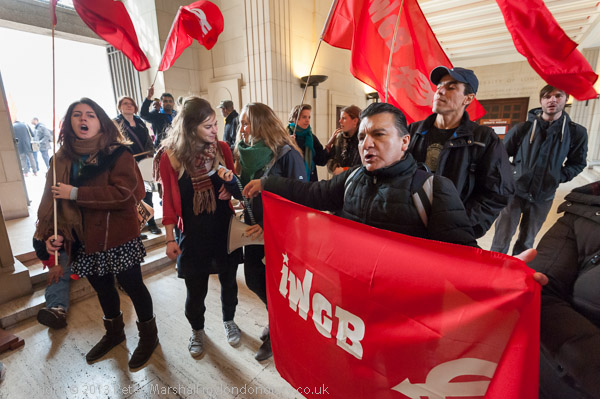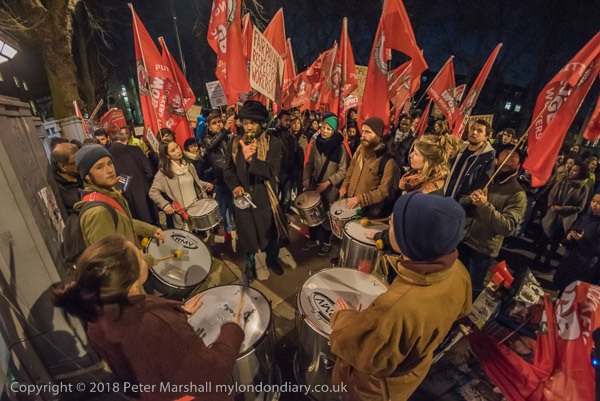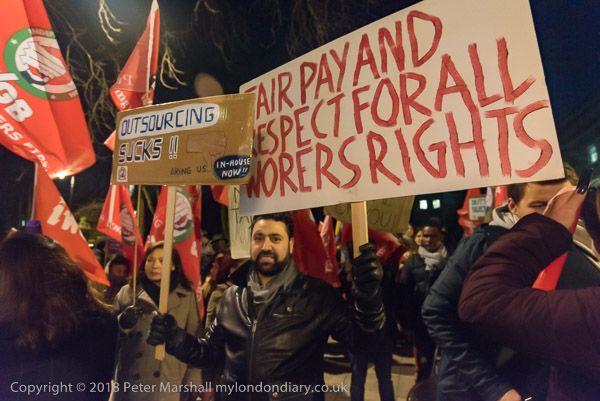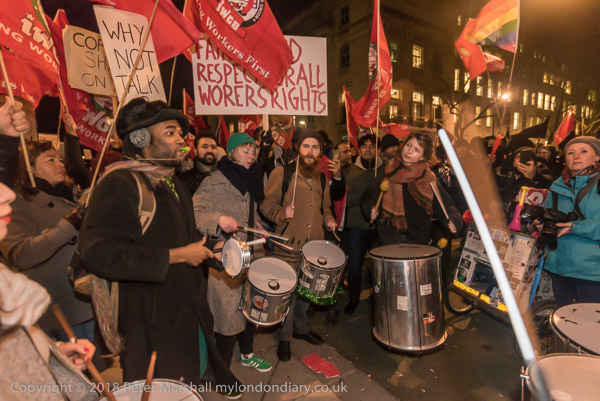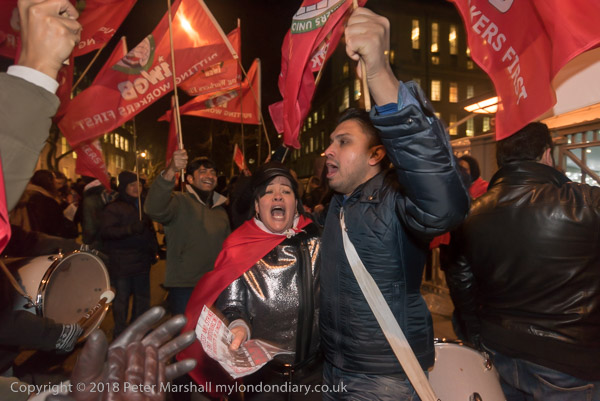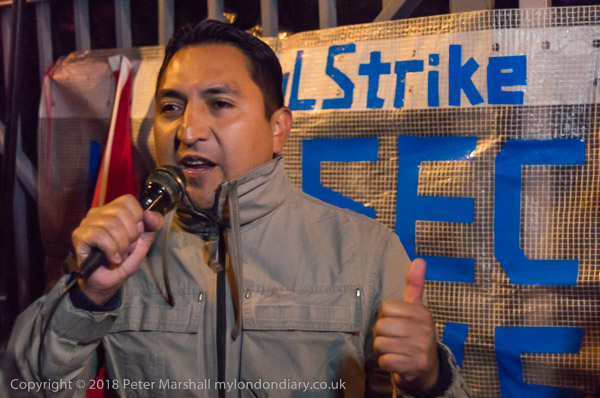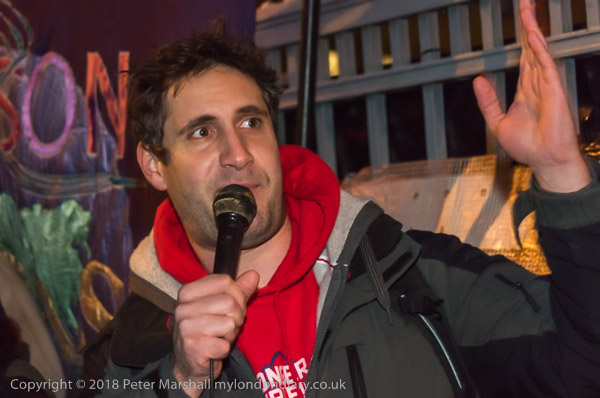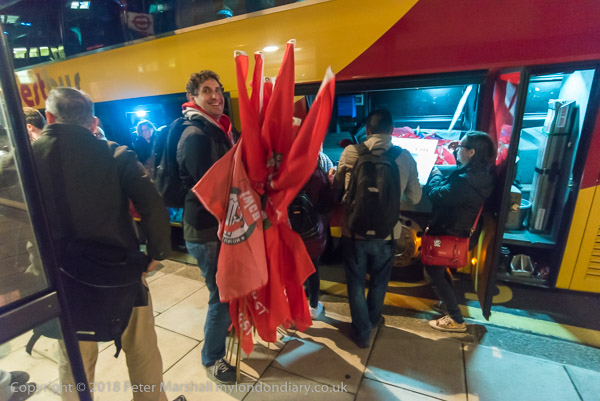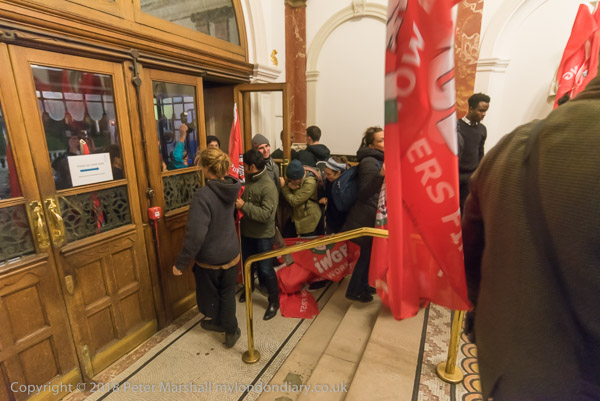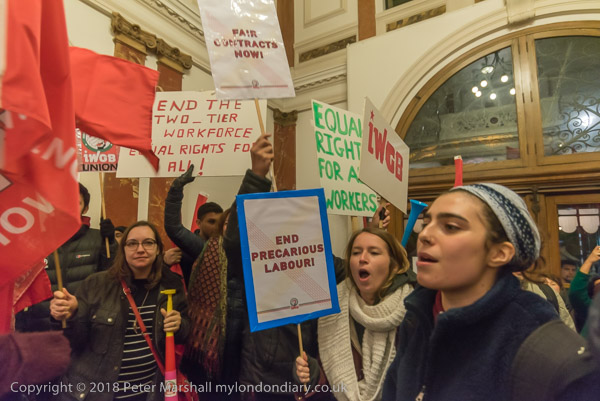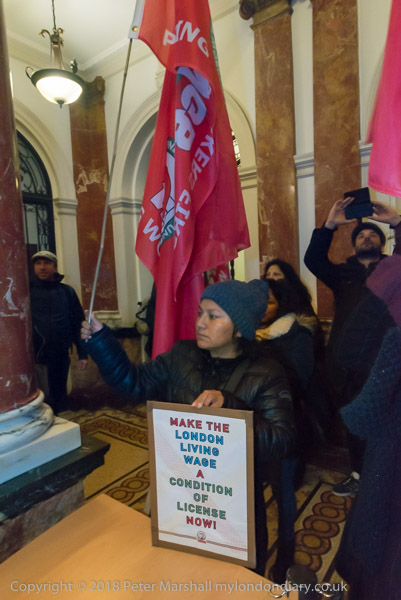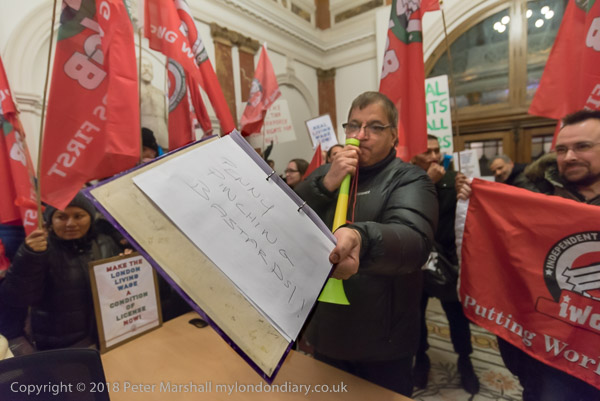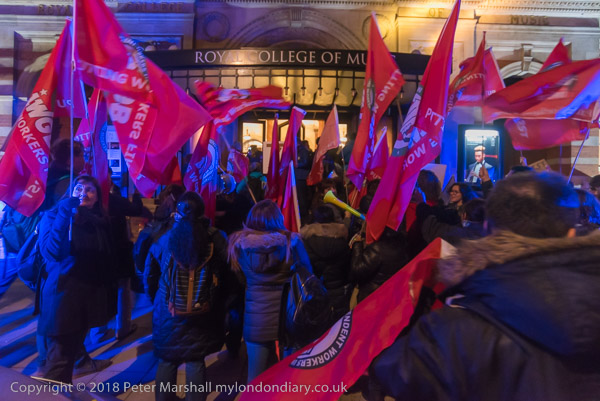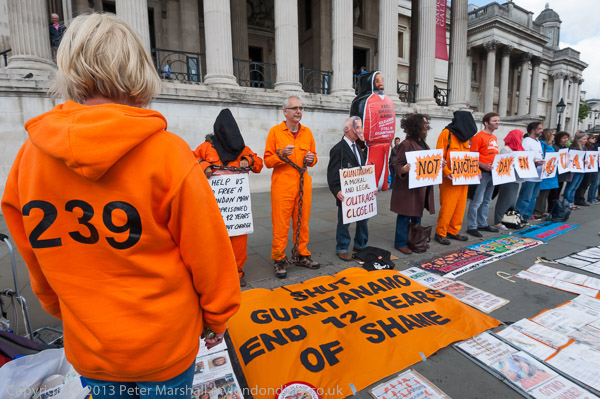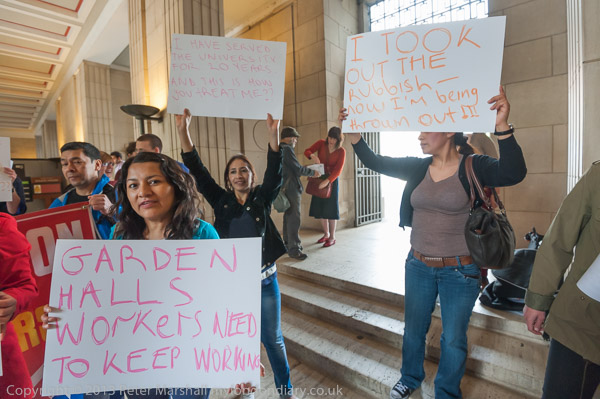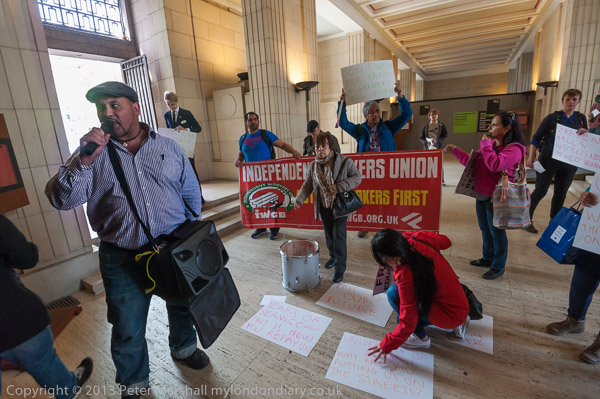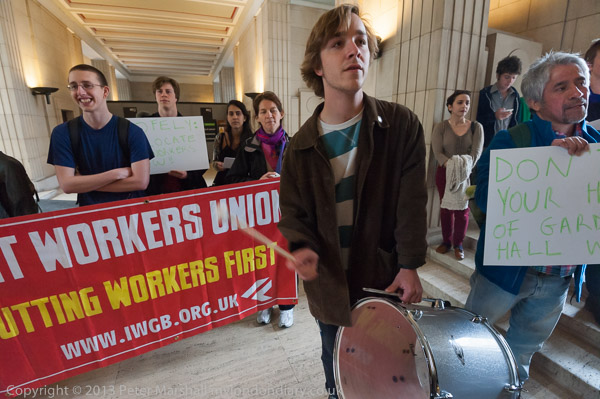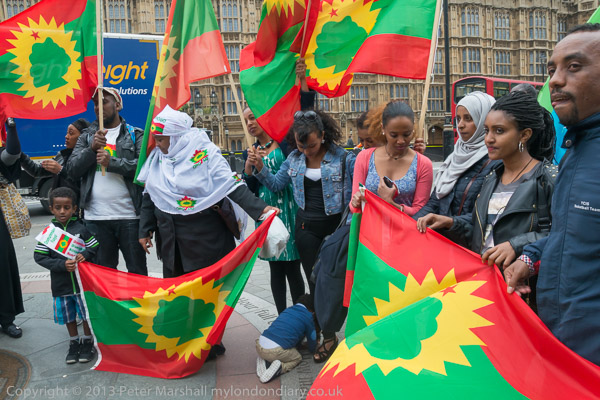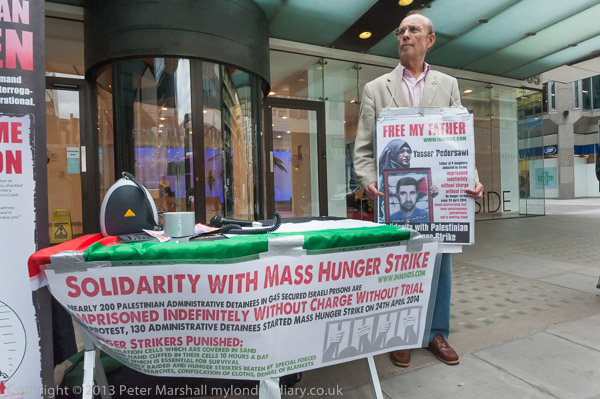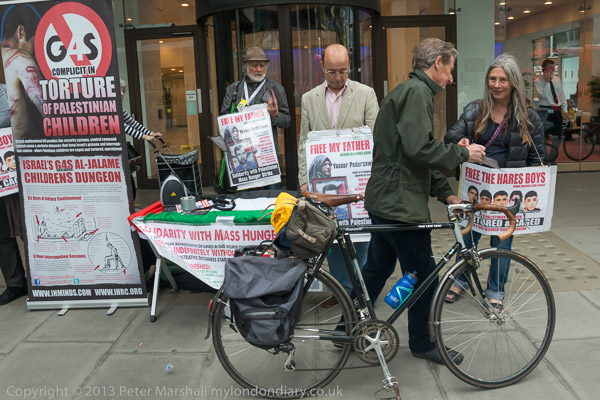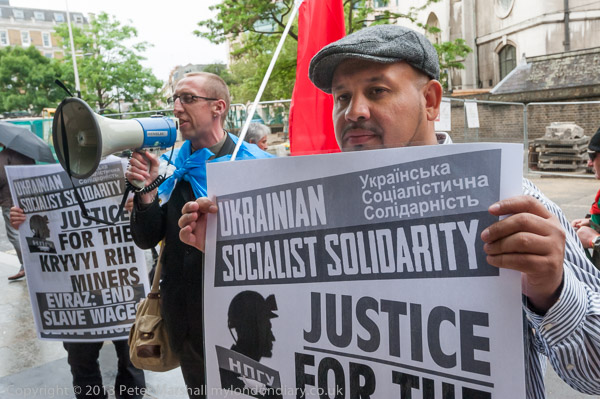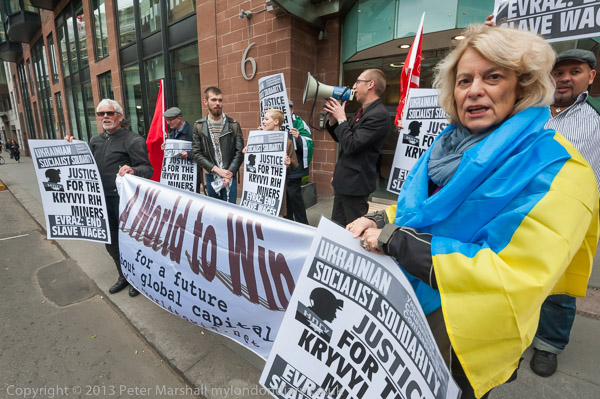Obama, UoL, Ethiopia, Israel & Ukraine – Another disparate set of protests ten years ago on Friday 23rd May 2014 had me rushing around London to document them.
Obama keep your promises – Trafalgar Square
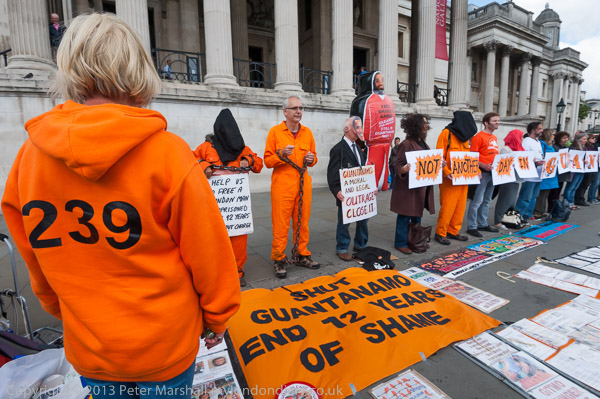
My working day began in Trafalgar Square where the London Guantánamo Campaign and others had come as a part of an international day of action coordinated by the US organisation Witness Against Torture, with protests in 40 cities in three continents calling on President Obama to make good the promise he had again made a year earlier to close Guantánamo.
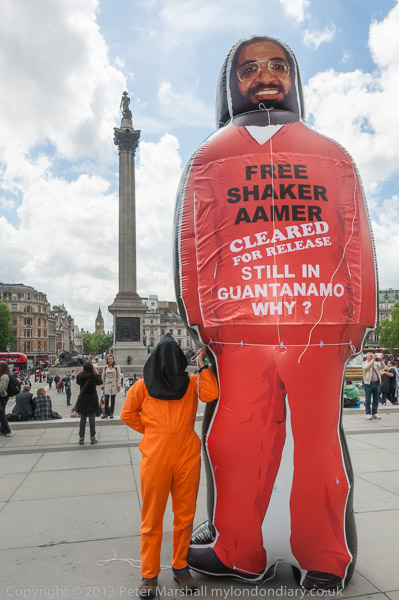
The campaigners many dressed in black hoods and orange jumpsuits stood in a long line on the North Terrace holding posters. Some had brought a giant inflatable figure of Shaker Aamer, a London resident, still there, held without charge for 12 years despite having twice been cleared for release.
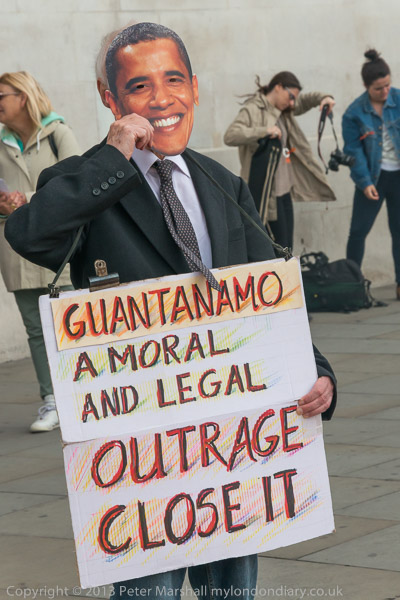
As spokesperson for he London Guantánamo Campaign Aisha Maniar stated:
“In over five years as US president, Barack Obama has failed to deliver a change we can believe in on Guantánamo Bay. Twelve years of indefinite detention almost wholly without charge or trial for 154 prisoners has made the world an infinitely more insecure, dangerous, and lawless place… Obama’s words remain purely rhetorical. There is little intention to close Guantánamo Bay and the legal black hole it has created.”
Defend University of London Garden Halls workers – Senate House
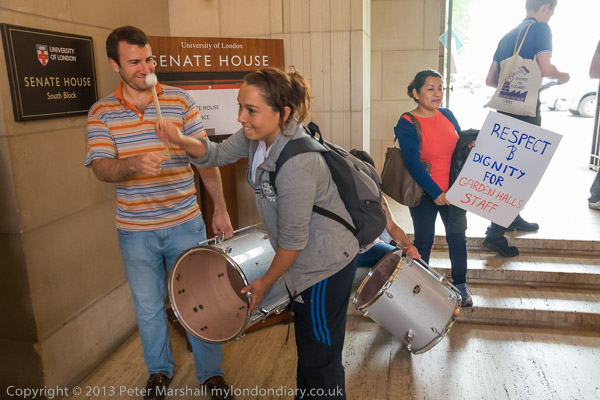
At 1pm I was Senate House with members of the Independent Workers of Great Britain, the grass roots trade union to which many low paid workers at the University belong, as well as supporters from the Joint Shop Stewards Network and university students and staff. Both the UoL and the contractors Cofely and Aramark who they have outsourced the workers to refuse to recognise the IWGB, preferring the more compliant traditional unions. But most of the cleaners and others had left these after finding they were unwilling to stand up to the employers on their behalf and joined the IWGB.
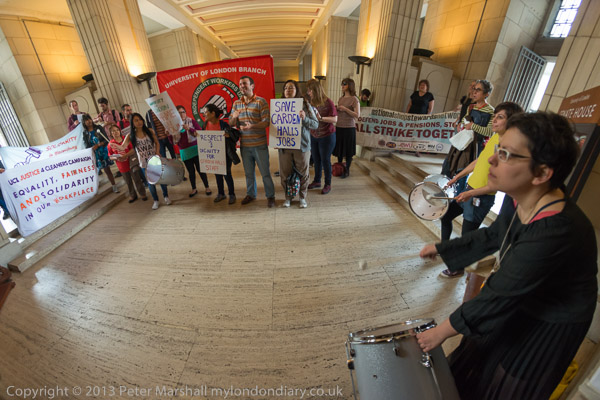
London University announced the closure of three of its Central London halls of residence – the Garden Halls – without consultation with the IWGB and intended to make over 80 workers redundant at the end of June.
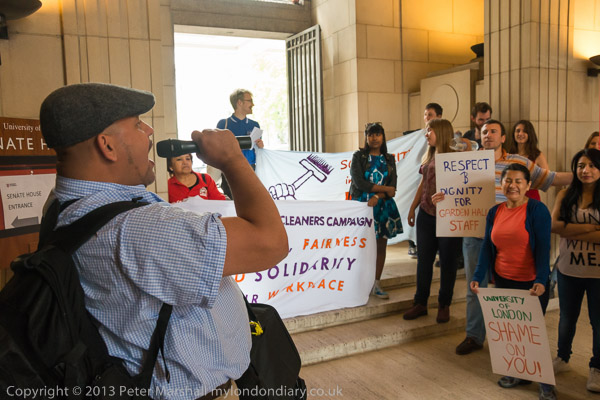
The IWGB had asked supporters to send letters to London University Vice-Chancellor Professor Sir Adrian Smith listing their demands that there should be no compulsory redunddancies and the the length of service of the workers be respected, as well as calling for meaningful consultation withe the IWGB and that workers transferred to other contracts should retain their pay, terms and conditions. They stated “the University bears responsibility for the treatment of these workers, regardless of the fact that their roles are contracted to private companies.”
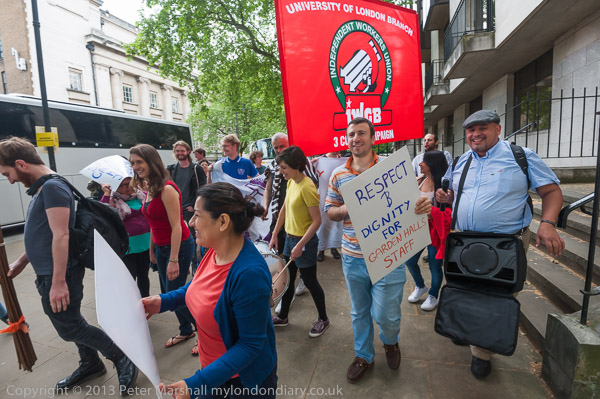
Around 30 protesters were outside the main entrance to Senate House when I arrived and were drumming a very noisy demonstration while handing out leaflets and displaying banners.
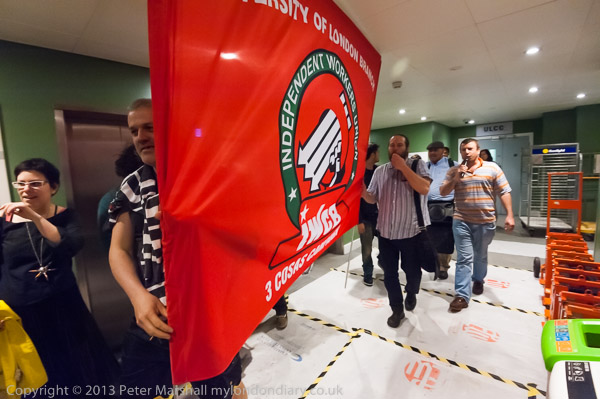
Soon after they were joined by IWGB organiser Alberto Durango they left to walk around the outside of the building. Security had rushed to close the door on Montague Place but when the protesters reached Russell Square the doors to Stewart House, part of the University estate joined to Senate House they found an open door and around half of them walked in to protest noisily inside the building for a few minutes, still beating their drums before finding another exit into the Senate House car park.

Here the protest came to to an end with the IWGB’s usual message, ‘We’ll be back!’. The IWGB was balloting its members for strikes against both Cofely and Aramark.
More at Defend UoL Garden Halls workers.
Oromo and Ogaden against Ethiopian killings

I rushed to Parliament to meet Ethiopians protesting outside Parliament over the Ethiopian government’s killing of Oromo university students peacefully protesting the grabbing of Oromo land. The protest was coming to an end as I arrived but I was able to quickly take a few pictures
The protest was by supporters of the Oromo and Ogaden National Liberation Fronts founded shortly before the fall of Emperor Haile Selassie. Since then the military government, the Derg regime and the new Ethiopian state has continued the suppression of the Oromo, and initiated mass resettlements from Northern Ethiopia onto Oromo lands and moved millions of Oromo into camps run by the military.
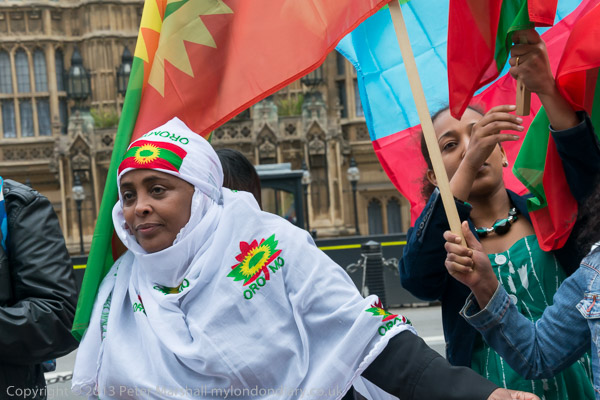
The USA was found by BBC Newsnight and and the Bureau of Investigative Journalism exposed in 2011 to have worked with the the Ethiopian government in an alliance “using billions of dollars of development aid as a tool for political oppression” with programmes of deliberate starvation of communities, and “of mass detentions, (and) the widespread use of torture and extra-judicial killings” against what they describe as terrorism.
In early May there had been mass killing by the authourites of Oroam University students and civiliams protesting peacefully against illegal forcible evictions of Oromo farmers from their ancestral lands around Addis Ababa under the governments Addis Ababa Integrated Master Plan which will give their land to government supporters or sell it to foreign investors.
Oromo and Ogaden against Ethiopian killings
Support Hunger Strike in Israeli Jails – G4S Victoria Street
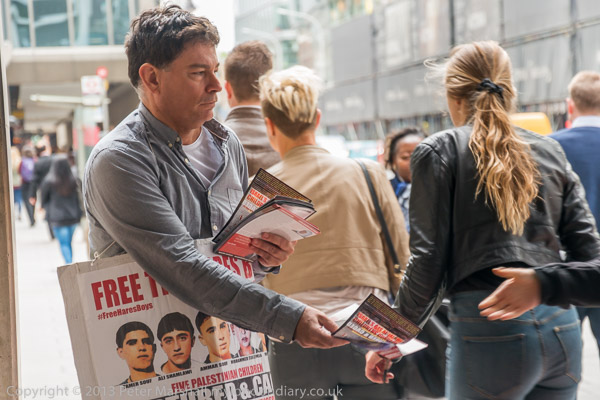
It was a short walk to the London HQ of G4S where campaigners supported by the Islamic Human Rights Commission were protesting in solidarity with the mass hunger strike by Palestinian prisoners in Israeli jails demanding an end to Israels’s illegal policy of rolling Administrative Detention which can jail them for years without charge or trial.
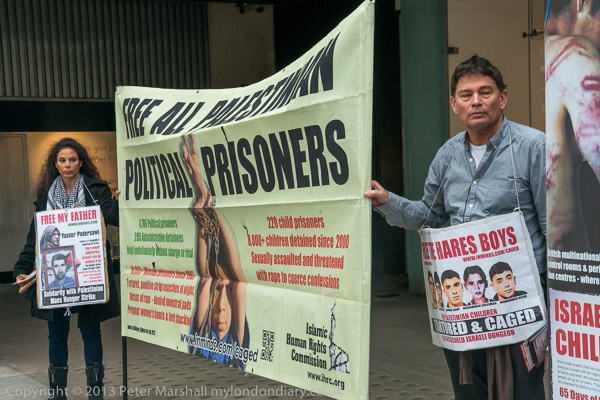
The put up a stall and banners on the wide pavement outside the building and spoke to people passing, handing out leaflets. Some stopped to talk and mostly expressed surprise at what was happening in Israel, although one man stopped to argue, telling the protesters that no one was held unjustly in prison in Israel and there was no torture in Israel. He was clearly deluded.
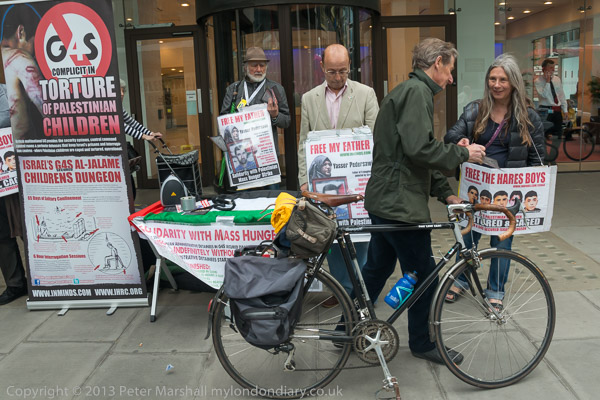
The world’s largest security firm G4S provided security services for Israel’s prisons until December 2016 when pressure from this and many other protests led it to sell is Israeli subsidiary divesting from Israel’s military checkpoints and illegal settlements. After further protests the company to sell its decided to sell its remaining business in apartheid Israel in June 2023.
Support Hunger Strike in Israeli Jails
Solidarity with Ukrainian Miners – Holborn
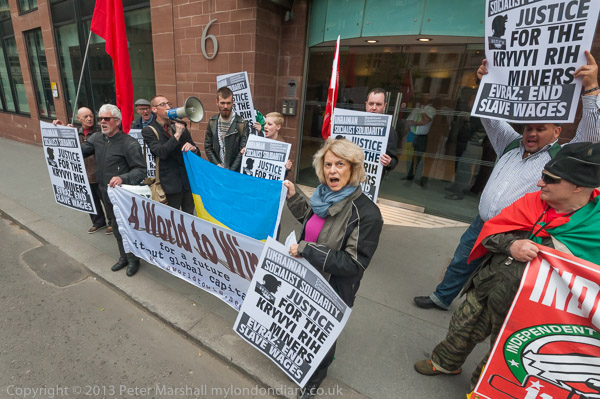
Finally I joined Ukrainian Socialist Solidarity and IWGB trade unionists who protested outside the registered offices of London mining company Evraz who own mines in the city of Kryviy Rih in south-east Ukraine.
Kryviy Rih is the centre of the largest steel industry in Eastern Europe an has a population of around three-quarters of a million people. Miners there have protested as the unrest and devaluation in Ukraine has caused a rapid rise in the cost of living with a fall in real wages of around 30-50% and a rise of 20% they had been promised in April was not paid. In its place they were given an small “insulting” one-off handout.

The Independent Union of Miners of Ukraine has demanded an immediate doubling of the real wage “in the interests of preserving social peace in this country.” They say the main cause of the economic problems in Ukraine “is the greed of Ukrainian and Russian oligarchs, who pay a beggar’s wage to workers, send all their profits off-shore and don’t pay taxes in Ukraine. In fact the oligarchs are almost completely exempt from taxes on their profits.” Evraz is owned by Russian Oligarchs Roman Abramov and Alexander Abramovitch who are based in the UK.
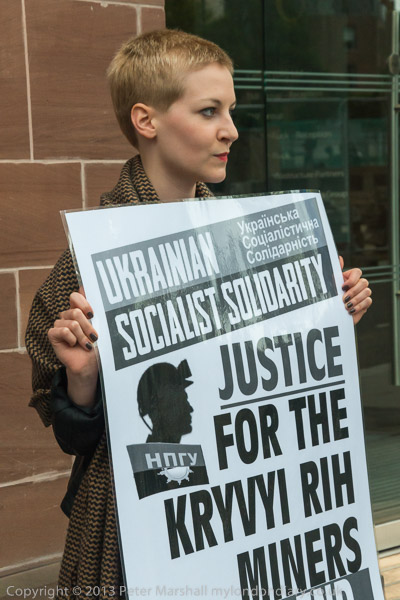
The protest took place after the Ukrainian union called upon the British public to picket the offices of EVRAZ plc and the offices of other Russian and Ukrainian oligarchs’ corporations in London and other cities in Europe.
But police attending the protest told the protesters these offices are cimply those of a firm providing accounting, tax, Human Resources and payroll services to various businesses and are not really a part of Evraz. Further protests were planned outside the Chelsea Football ground, also owned by Roman Abramovitch and for an EVRAZ Investor Day the following month which company chair Alexander Abramov is due to attend.
Solidarity with Ukrainian Miners
Flickr – Facebook – My London Diary – Hull Photos – Lea Valley – Paris
London’s Industrial Heritage – London Photos
All photographs on this page are copyright © Peter Marshall.
Contact me to buy prints or licence to reproduce.
